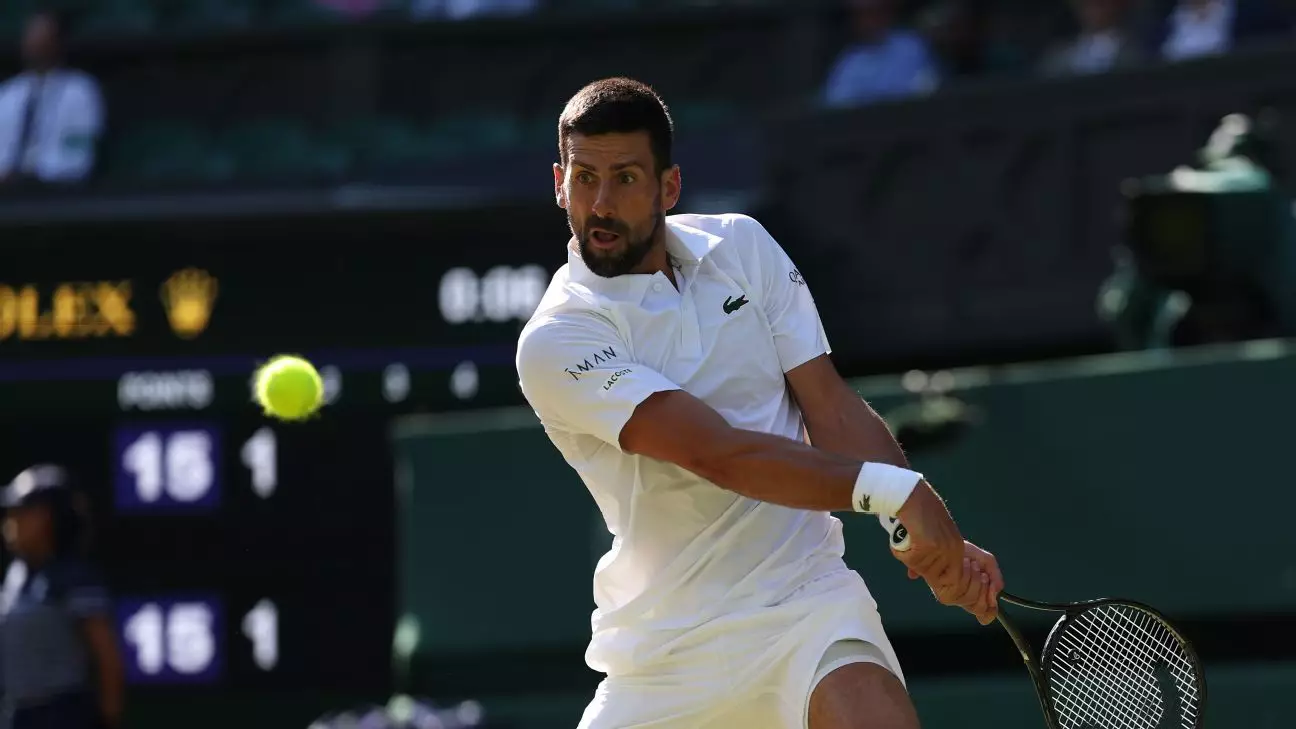Novak Djokovic’s recent Wimbledon exit has ignited a fierce debate about the twilight of his illustrious career. At 38, many expect age and mounting physical challenges to signal a natural farewell for the tennis legend. Yet, Djokovic’s ambiguous comments suggest a different story—one marked by resilience, stubborn ambition, and a refusal to accept the traditional limits of aging in sport. While his emotional farewell may have touched fans worldwide, his reluctance to definitively announce retirement exposes a complex narrative: is this truly the curtain call for Djokovic, or merely a pause before another act?
His post-match statements revealed a palpable desire to continue competing, proclaiming optimism about future appearances on Centre Court and hinting at a continuation of his career. Behind this veneer of hope lies a deeper question: can a player of Djokovic’s caliber sustain the physical and mental demands of top-tier tennis in the face of inevitable decline? Critical observers might argue that stubbornly clinging to the sport risks undermining his legacy, if it leads to diminishing returns and possible damage to his health. For Djokovic, the challenge is not just about extending his career, but ensuring that his legacy remains intact—preserving the reputation of one of the game’s all-time greats.
The Price of Relentless Competition
Djokovic’s recent struggles underscore a brutal reality: maintaining dominance at the highest level becomes exponentially harder with age, especially amid the hyper-competitive landscape of modern tennis dominated by young stars such as Carlos Alcaraz and Jannik Sinner. These rivals, fueled by their own ambitions, have collectively seized the last six Grand Slam titles, asserting a new generational order. Djokovic’s admission of physical strain during matches signals that, perhaps, his body is no longer able to sustain the relentless grind that once made him unstoppable.
However, dismissing his declarations as mere stubbornness underestimates his mental toughness. His insistence on “playing his best at Grand Slams” and his plans to consult with his team reflect a strategic mindset—an understanding that staying relevant requires more than just physical prowess. It demands a nuanced balancing act: weighing the risks of continued competition against the desire to leave a lasting imprint on the sport. If he continues, there is a real chance that further injuries or fatigue could tarnish his legacy, turning what should be a celebration of achievement into a cautionary tale.
Legacy and the Myth of Immutability
Djokovic’s career is a testament to exceptional talent and unrelenting perseverance, but it also exposes the dangers of aging athletes refusing to accept limits. While his record-tying 24 Grand Slam titles cement his place among the greatest, the manner in which his career evolves—whether he accelerates towards retirement or stubbornly fights on—will define how future generations view his legacy. There is a certain romanticism attached to athletes who refuse to fade into obscurity, yet history often remembers those who knew when to step back with dignity.
His decision-making now is crucial. Continuing to compete might inflate his tally of titles temporarily but could also risk diminishing the mythical status he has cultivated. Conversely, retiring at the right moment, with a reputation preserved and respect intact, might serve as a more admirable conclusion. Such self-awareness requires brutal honesty and a willingness to accept that, perhaps, the best thing for his legacy is to recognize that his time at the top is now limited—not just by physical decline but by strategic wisdom.
In the grand drama of Djokovic’s career, the current crossroads is a gripping narrative of human resilience versus the harsh realities of aging. His refusal to declare an imminent end hints at an underlying defiance—a deep-seated desire to prove that age is just a number. Yet, critics would argue that holding onto competitiveness at all costs risks trivializing what should be a dignified exit.
Ultimately, this is not merely about tennis; it is about understanding the delicate balance of ambition, health, and legacy. Djokovic’s journey exemplifies the complex emotions and tough decisions faced by athletes who refuse to go quietly into the night. Whether he recreates the magic or finally accepts the quiet dignity of retirement will indelibly shape his legacy—and inform the discussion on what it truly means to be a champion in the face of decline.

